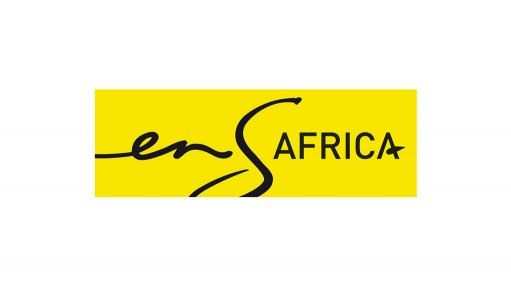
ENSafrica’s third annual anti-bribery and corruption (“ABC”) survey reveals a significant increase in incidents of bribery and corruption in Africa. The survey results show that 39% of respondents experienced incidents of bribery or corruption in the last 24 months, and highlight a marked increase in bribery and corruption in South Africa in particular.
132 respondents took part in the survey, the vast majority of which indicated that they do business in Africa (83%). Respondents came from a broad range of industries, with financial services comprising the biggest sector (25%), followed by manufacturing, retail and wholesale (24%).
With a global intolerance to bribery and corruption, corporates in Africa may incorrectly believe that they can escape the reach of foreign regulators. For example, United States regulators are monitoring the corruption landscape in Africa, as evidenced by the FBI’s arrest of the son of a former Gabonese Prime Minister, for allegedly paying bribes on behalf of a United States company in, among others, Zimbabwe, the Congo and Libya.
Of the 39% of respondents who experienced incidents of bribery or corruption in the last 24 months, 18% experienced three or more incidents and 20% experienced five or more incidents, with 79% of incidents reported in South Africa. Incidents, which include bribery and corruption in terms of customs clearing, immigration and rights and permits, were also reported to have occurred in Mozambique, Kenya, Namibia, Ghana, Tanzania, the Democratic Republic of Congo and Uganda.
Below are some of respondents’ perceived bribery and corruption risks for the 2016 and 2015 surveys:

The most frequent means for reporting incidents of bribery and corruption include:
- verbal reports to management (67%)
- whistle-blower hotlines (61%)
- email (23%)
“The importance of whistle-blower hotlines cannot be overemphasised,” says Steven Powell, head of forensics at ENSafrica, “as they provide employees and third parties with a vital channel to report suspected incidents of bribery and corruption to senior management.”
Powell adds that many systems allow whistle-blowers to remain anonymous, which can address fears of victimisation and personal danger. “Of concern is that 20% of respondents indicated that their companies did not have a whistle-blower hotline in place. For companies without such a system, it is highly advisable that a robust whistle-blower reporting channel is implemented,” said Powell.
“When it comes to corrupt activities, prevention is better than cure and ABC compliance should be non-negotiable for all corporates operating in Africa,” concluded Powell.
To view the full findings of the survey, please click here.
The following items are attached for your perusal:
ENSafrica firm brochure
ENSafrica forensics brochure and insert
ENSafrica forensics team CVs:
Steven Powell
Edward James
Andisiwe Jele
For more information, or if you would like a copy of the ABC survey results presentation, please contact Cindy Witten, +27 72 198 6452, cwitten@ENSafrica.com
This article was first published by ENSafrica (www.ENSafrica.com)
No information provided herein may in any way be construed as legal advice from ENSafrica and/or any of its personnel. Professional advice must be sought from ENSafrica before any action is taken based on the information provided herein, and consent must be obtained from ENSafrica before the information provided herein is reproduced in any way. ENSafrica disclaims any responsibility for positions taken without due consultation and/or information reproduced without due consent, and no person shall have any claim of any nature whatsoever arising out of, or in connection with, the information provided herein against ENSafrica and/or any of its personnel. Any values, such as currency (and their indicators), and/or dates provided herein are indicative and for information purposes only, and ENSafrica does not warrant the correctness, completeness or accuracy of the information provided herein in any way.